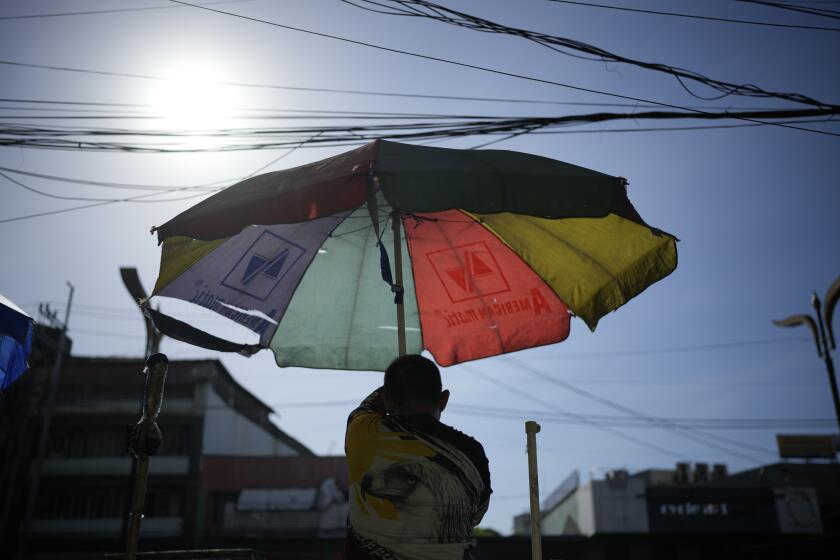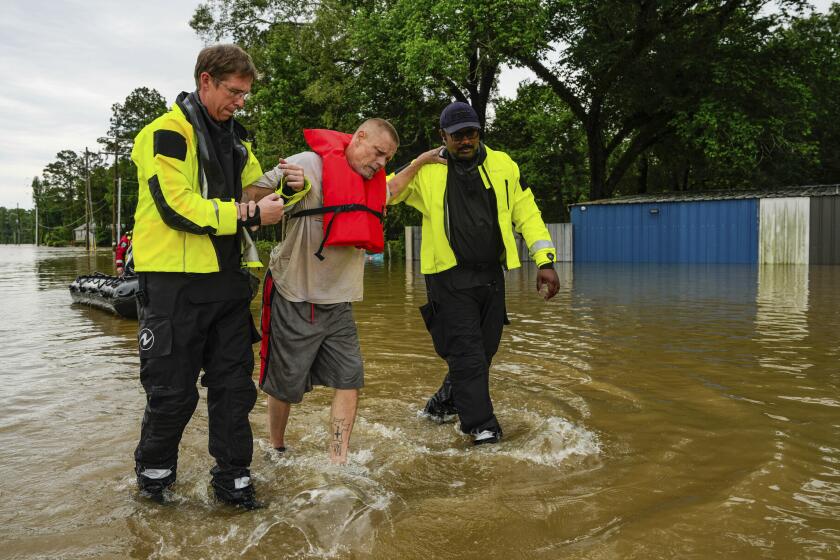For Arizona Tribe, Casino Means Self-Sufficiency
Debbie Haynes knows exactly what’s at stake in the national debate over Indian gambling.
Profit from her tribe’s newly expanded casino is putting her through college.
“I probably would have gotten back into school somehow,” said the 33-year-old Yavapai. “But the gaming helped me get there much faster.”
Scholarships like Haynes’ are just one of the benefits the tribe has drawn from the card tables and slot machines in its gaming hall.
Like Indians in 18 other states, the 850 Yavapais on this reservation in the desert foothills 35 miles northeast of Phoenix have a vested interest in preserving the federal Indian Gaming Regulatory Act.
*
The tribe quietly ran slot machines in its old bingo parlor until last year. Then, on May 12, 1992, agents seized more than 350 machines as part of a crackdown on reservation gaming conducted without the state approval required by the federal act.
Scores of Yavapais used cars, pickup trucks and heavy equipment to blockade the agents and the seized machines in the parking lot. The standoff ended peacefully and prompted the state to restart long-stalled talks, which resulted in gaming agreements signed in June between the state and eight tribes.
The slots have been ringing at the casino known as “The Fort” since January under a preliminary deal with Republican Gov. Fife Symington. Under the June agreement, the number will be boosted from 250 to 475. The casino has been bringing in nearly $1 million a week since it reopened, tribal Chairman Clinton Pattea said during a recent tour of the reservation. With operating costs of just $1 million a year, that translates to a $50 million to $60 million annual profit, he said.
Without gaming, the tribal budget is just $2.5 million.
For Haynes, the benefits are immediate.
She has a community college degree and always wanted to return to school, but limited means and responsibilities to her children made that impossible.
*
Now, she’s working part time for the tribe while she takes classes at Scottsdale Community College and Arizona State University.
She hopes to go to law school in the East and return to work for the tribe.
Casino money is at work elsewhere on the 25,000-acre reservation: Five of a planned 15 new homes have already been built this year, a day-care center has been added to the health clinic and there are plans to expand the tribal government offices.
Pattea said that’s just the start.
The retired banker envisions a new casino with a hotel and golf course on the nearby state highway that takes Phoenix residents north to fishing and camping spots.
*
The tribe’s earlier economic development efforts included an alfalfa farm and a sand-and-gravel operation.
But the revenue from the casino is the key to self-sufficiency, Pattea said.
“When I was growing up, there were no paved roads, the city seemed like it was a million miles away,” Pattea said. “We had no future, so we had to do something to turn that around.”
More to Read
Start your day right
Sign up for Essential California for news, features and recommendations from the L.A. Times and beyond in your inbox six days a week.
You may occasionally receive promotional content from the Los Angeles Times.






